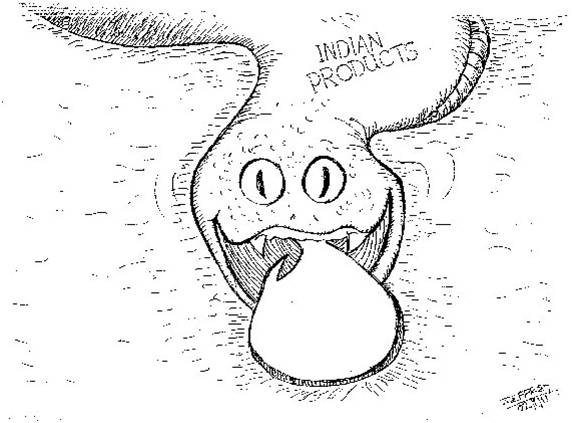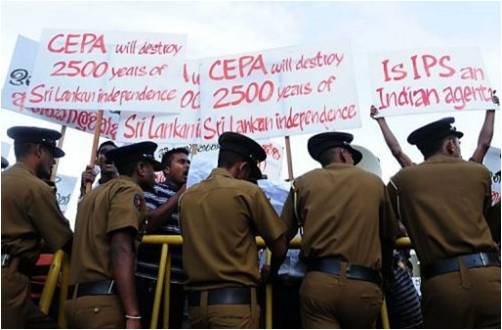 |
Sri Lankan immigration officials have been busy trying to spot and deport Indian Tamil traders who have been selling their wares in the north-eastern Tamil speaking areas of the island, the Sunday Times reported.
Over 2,000 south Indian Tamils have been deported from Sri Lanka over the past six months alone, the report said. Most recently a Tamil trader was deported after being caught at Vavuniya station carrying textiles to sell during the coming New Year festivities.
The hostility to Indian traders reflects Sri Lanka’s wider attempts to block Indian commercial access to the island.
Colombo has resisted Indian attempts to finalise the Comprehensive Economic Partnership Agreement (CEPA) that would open up the possibilities for greater trade and investment between the two countries.
Bilateral discussions on CEPA stalled after protests by Sinhalese professional and business groups opposing the agreement as a threat to Sri Lankan (read Sinhalese) sovereignty. Protestors held placards denouncing CEPA as threatening Sri Lanka’s 2, 500 year history of independence from India.
 |
The existing balance of trade between the two countries is heavily regulated by tariffs and quotas (mostly in Sri Lanka) but nevertheless strongly favours India. Indian exports to Sri Lanka amount to $5.5 million whilst Sri Lankan exports $0.5 million worth of goods to India.
Basil Rajapakse, the Economic Development minister, is set to visit Delhi later this month. As well as discussing India’s support for the recent UN Human Rights Commission resolution against Sri Lanka, Rajapakse is also set to address Indian business leaders in an effort to invite greater investment in Sri Lanka.
In other words, whilst Sri Lanka wants Indian capital investment, it does not want Indian trade, Indian traders or indeed Indian advice on constitutional reform!
